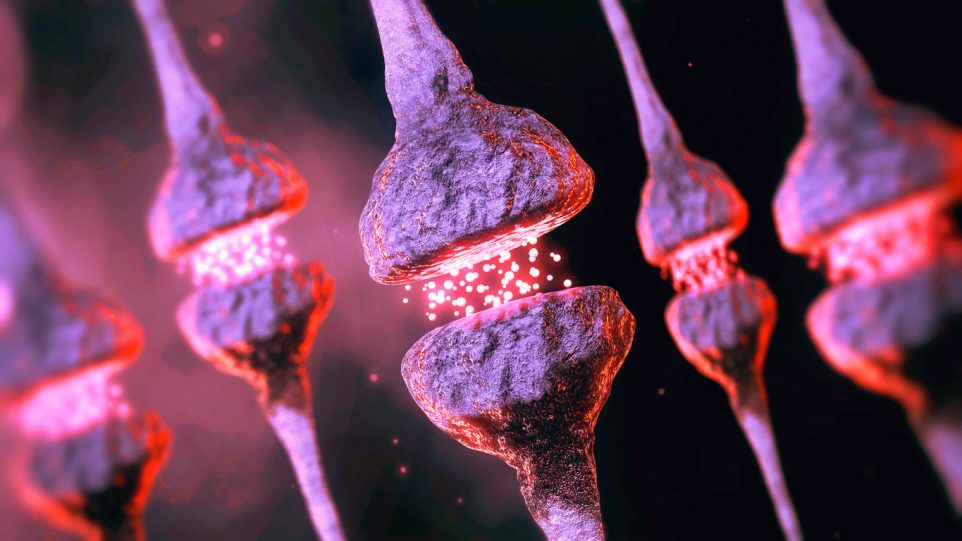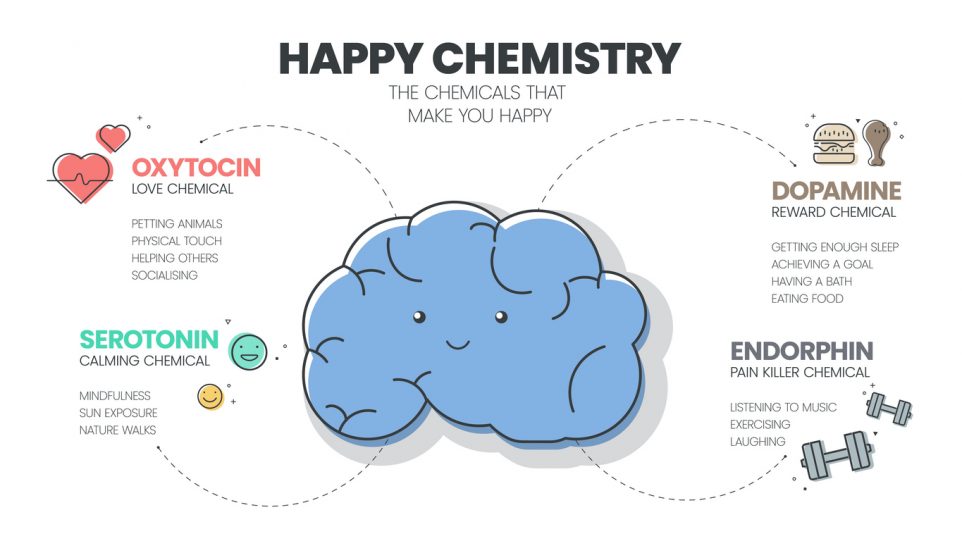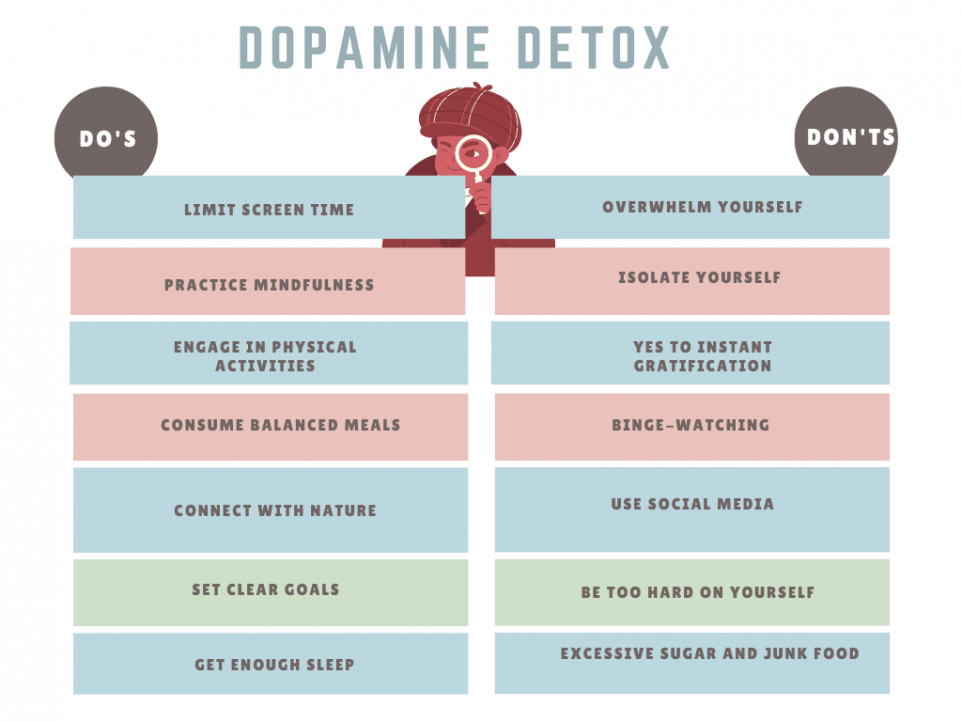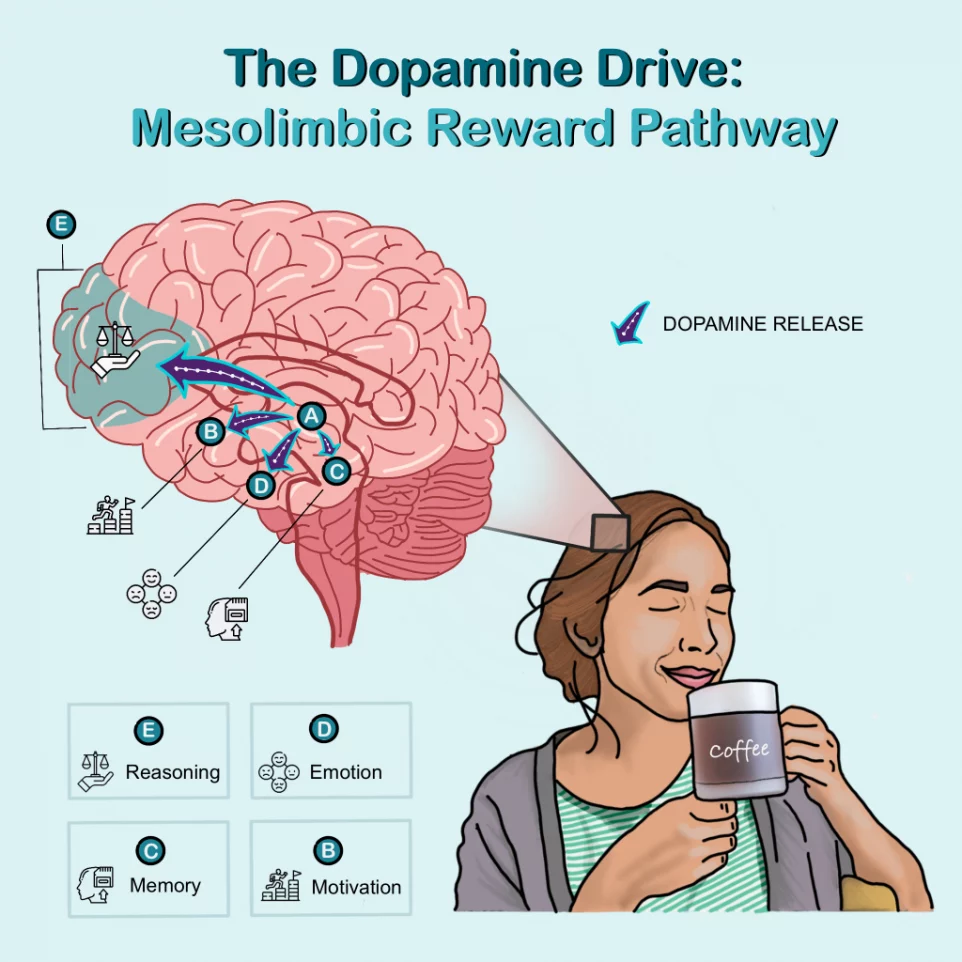What Is Dopamine Detox and Does It Actually Work?

Dopamine is that tricky little neurotransmitter that’s supposed to keep us focused and fired up about life’s many adventures; but sometimes, it can lead us astray. You see, too much of a good thing means our brains can get a little too used to the high, and suddenly, it takes a lot more to make us feel good. So, what’s a body to do? If you’re feeling like you’re running on empty, devoid of motivation, or just plain numb to the pleasures of daily life, you might have a dopamine problem.
The Role of Dopamine in the Brain
Dopamine is often spotlighted for its role in our pleasure and reward systems, heavily influencing how we experience enjoyment and motivation. It’s like the brain’s own motivational speaker, urging us to seek out what makes us feel good—from the simplest of snacks to the buzz from social media notifications. However, its role is far more nuanced than just doling out hits of happiness.

When dopamine floods the brain’s reward pathway, a part of the brain that lights up with every ‘like’ on social media or every ping of a notification, it can feel great. But it’s not just about feeling good in the moment; dopamine also helps regulate our emotional responses and plays a crucial role in how we learn and make decisions. By understanding how dopamine affects these pathways, we begin to see how continuous stimulation—like the endless scroll on a smartphone—can lead to a kind of “noise” in our neural circuits, diluting the quality of our daily motivation and focus.
What Is Dopamine Detox?
Dopamine detox isn’t about stripping all joy from your life. Rather, it’s about resetting our brain’s reward system to appreciate the smaller, healthier boosts of dopamine. It’s like a system reboot for your neural pathways, encouraging them to make do with less and enjoy more.
The idea here is not just about cutting out the usual suspects like social media, binge-watching, or sugar-binging. It’s deeper. It’s about reducing dependence on any stimulus that causes significant dopamine surges to recalibrate our brain’s reward system. This might sound a bit like a trial, but many find it surprisingly enlightening—discovering joy in simpler things and reducing the constant need for digital validation or sensory overload.
How To Do a Dopamine Detox

Identify Your Triggers: What spikes your dopamine unnaturally? Is it hours of scrolling through Twitter, stress-eating, or marathon gaming sessions? Pin these down as your first step.
Set Clear Boundaries: Once you know your triggers, set hard boundaries. If social media is your kryptonite, try apps that limit your usage, or designate tech-free hours during your day.
Engage in Low-Dopamine Activities: Replace high-dopamine activities with ones that give you less of a ‘hit.’ Reading, meditating, journaling, or even engaging in mindful cooking can be excellent alternatives.
Seek Out Natural Light: Exposure to natural light, especially in the morning, can help regulate your body’s production of serotonin and dopamine naturally, boosting your mood and energy levels in a balanced way.
Exercise Regularly: Not the high-intensity kind necessarily, but regular, moderate exercise can boost your base levels of dopamine naturally, enhancing your mood and energy levels sustainably.
Sleep: Never underestimate the power of a good night’s sleep. Ensuring you get enough sleep helps restore brain function and balance neurotransmitter levels, including dopamine.
Benefits of Dopamine Detox

Taking a step back from the whirlwind of constant notifications, likes, and digital buzz can do wonders for your overall well-being. When you decide to cut down on activities that shoot dopamine through your roof, you’re not just giving your brain a break—you’re setting the stage for a more balanced life.
Starting a dopamine detox can feel like a breath of fresh air for your mental state. It’s about more than just avoiding your phone or not checking social media. It’s a chance to decrease the stress that comes from always being “on.” This can recalibrate your stress levels and help you find a more peaceful state of mind.
What’s more, this break from high stimulation can sharpen your focus and boost your productivity. Without constant interruptions, your mind can settle into deeper concentration, making it easier to get things done and maybe even spark some creativity.
This kind of detox isn’t just about saying no; it’s about gaining control over your impulses. By consciously choosing to step away from digital demands, you’re training yourself in the art of self-control. This discipline can spill over into other areas of your life, making it easier to resist unhealthy temptations and distractions.
There’s also a hidden joy in rediscovering simpler pleasures. When your dopamine levels aren’t constantly being spiked by digital content, the world slows down a bit. You might find joy in a leisurely walk, an uninterrupted chat with a friend, or even the subtle flavors of a home-cooked meal.
Besides enhancing your day-to-day life, cutting down on dopamine-spiking activities can lead to healthier habits. With more time on your hands and less distraction, engaging in beneficial activities like exercise or hobbies becomes more appealing and doable.
Lastly, the mental health benefits are undeniable. Scaling back on digital consumption can reduce feelings of anxiety and depression that often accompany our modern, connected lives. It allows for a mental reset, which can stabilize your mood and improve your overall mental health.
What Does Research Say About Dopamine Detox?
Despite its popularity, the term “dopamine detox” is a bit misleading. While stepping back from overstimulating activities can help us recognize dependency behaviors, it doesn’t actually reduce dopamine levels in the brain. Instead, what changes is our sensitivity to dopamine, which can affect how intensely we feel pleasure or motivation from everyday activities.
Scientifically, dopamine levels are crucial for normal brain function, and reducing them significantly can lead to disorders such as Parkinson’s disease. Instead, research points to the benefit of resetting our behavioral responses to dopamine releases, which can be heightened by the overuse of digital media, among other stimulants. This reset isn’t about reducing dopamine per se but about recalibrating our response to it, which can help mitigate feelings of anxiety and depression associated with withdrawal from high-stimulation activities.
Studies have shown varying results regarding the efficacy of practices similar to dopamine fasting, particularly in managing addictions. For instance, certain restrictive interventions have helped individuals with internet gaming disorders significantly reduce their symptoms. However, outcomes for substance use and eating disorders have been mixed, suggesting that while some principles of dopamine fasting can be beneficial, they are not a cure-all for every type of addictive behavior.
Who Should Try (and Avoid) a Dopamine Detox?
Dopamine fasting can be a useful tool for people who find themselves overly dependent on digital stimulation or other high-reward behaviors that aren’t substance-related. It’s about identifying behaviors that disrupt daily life and consciously removing or reducing those behaviors to improve mental health and well-being.
However, it’s not advisable for everyone. For those dealing with substance use disorders, for example, dopamine fasting can be risky and is not recommended. Such conditions require professional treatment and support. Similarly, for severe behavioral addictions that impair daily functioning, professional counseling is recommended over self-managed dopamine fasting.
While dopamine fasting can offer temporary relief and a sense of regained control over compulsive behaviors, it’s crucial to complement it with strategies that promote long-term healthy habits. This might involve setting up new routines that offer rewards that are less instant but more fulfilling in the long run.
Building a Stronger You
Supplement Institute is the fruit of extensive online publishing experience, spanning the breadth of SEO strategies to the nuances of paid advertisements. Our journey, marked by significant achievements and learning moments, inspires our core mission: to empower our readers with an abundance of information. By sharing insights and key learnings, we aim to provide you with the knowledge needed to navigate the complex world of supplements, helping you make well-informed decisions for your health and well-being. Welcome to Supplement Institute, where information is your greatest supplement.